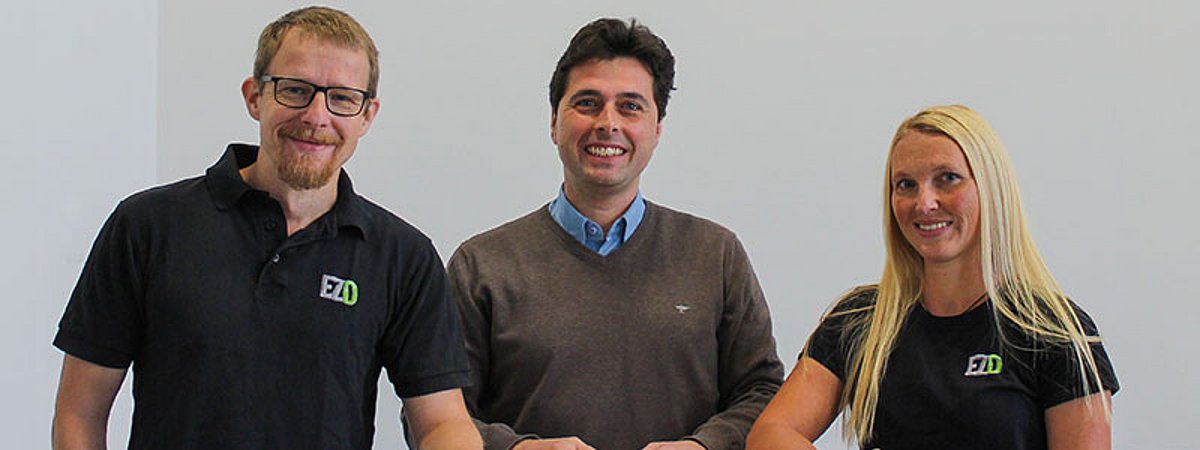European Center for Dispersion Technology (EZD) continues to grow

The European Center for Dispersion Technologies (EZD) in Selb has been growing steadily since it was founded ten years ago. For example, two new research groups on reactive and colloidal systems were established at the beginning of 2023 as part of the expansion of the EZD, which have now been filled by two group leaders.
Until now, the new research groups at the European Center for Dispersion Technology (EZD) have been led on an interim basis by EZD site manager Dr. Felipe Wolff-Fabris. The Colloidal Systems Group has been led by André Nogowski since March 1, 2024 and the Reactive Systems Group by Dr. Natascha Kuhl since July 1, 2024. As a research unit of the EZD, the two research groups at the technology center in Selb cover a wide range of different dispersion processes from laboratory scale to pilot scale. With the extensive machinery, almost every (dispersing) process from wetting and homogenizing to true comminution using an agitator bead mill can be mapped. With the expansion of the EZD to include a laboratory for surface coating and characterization and a dispersion pilot plant, substrates can be coated using various processes (such as spray painting, powder coating and digital printing) and coated surfaces can be characterized. Coating materials and inks can also be evaluated in terms of processability and final properties, and industry-related research on paints, coatings and inks can be expanded up to the 100 liter scale.
The Colloidal Systems research group
In addition to dispersion and optimization of the dispersion process, the group focuses on the formulation and characterization of colloidal suspensions. Typical material systems are paints, varnishes, coatings and inks, but also ceramic slurries or battery suspensions. "I am very pleased that we have been able to fill the position of Colloidal Systems Group Leader with an experienced SKZ employee with extensive experience in project acquisition and processing from within our own ranks. André Nogowski has everything it takes to massively develop the Colloidal Systems Group," says Wolff-Fabris. André Nogowski adds: "I am looking forward to working together with my colleagues, but also to the intensive exchange of experience and the diverse collaboration with industry partners and customers. We have such an exciting and broad field of work ahead of us - with our portfolio, we address users from all sectors, from the automotive industry to dentistry."
The Reactive Systems research group
The Reactive Systems research group focuses on research and development for the formulation of innovative reactive systems that are used in various applications such as coatings, adhesives and resins. The research group deals with the formulation and characterization of adhesives and potting compounds, but also with the development of UV coating systems for coating plastics, whereby the sustainability aspect is playing an increasingly important role. The team supports companies in the testing, analysis, optimization and development of innovative products and processes and advises interested companies on the use of reactive systems. In addition to material testing and quality control of coatings, adhesives and resins, the group also focuses on the development of sustainable and environmentally friendly solutions that meet the requirements of the industries and regulatory specifications. "With Natascha Kuhl, we have been able to fill the position of Reactive Systems Group Manager with an employee with in-depth chemical knowledge and experience in project acquisition and processing. In addition, Natascha Kuhl brings with her a great deal of expertise in bio-based polymers, which is of great importance for the further development of the Reactive Systems Group," says Wolff-Fabris. "I am looking forward to working with my colleagues to develop new solutions that not only promote scientific innovation, but also drive forward practical applications in industry," adds Natascha Kuhl.
